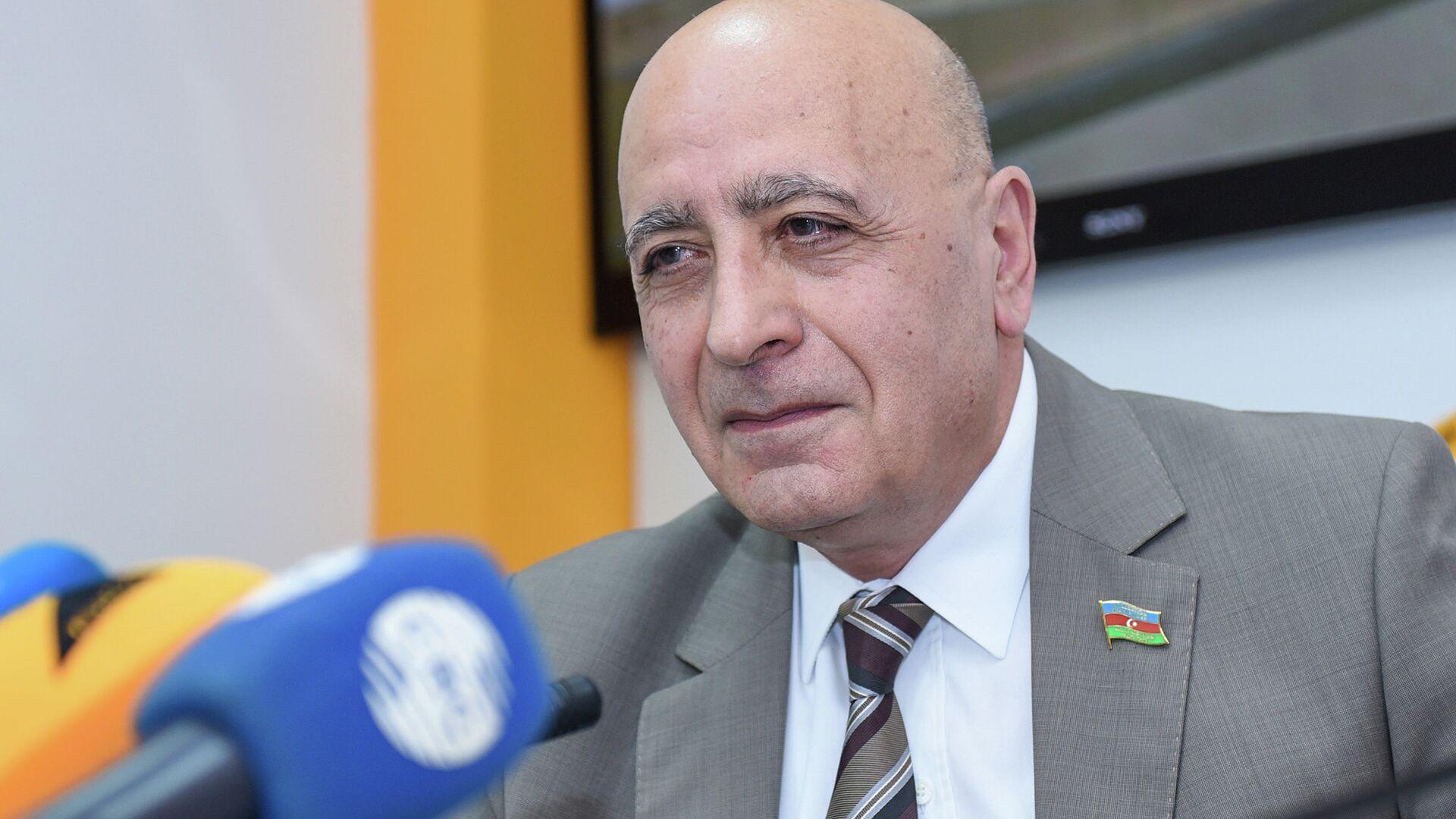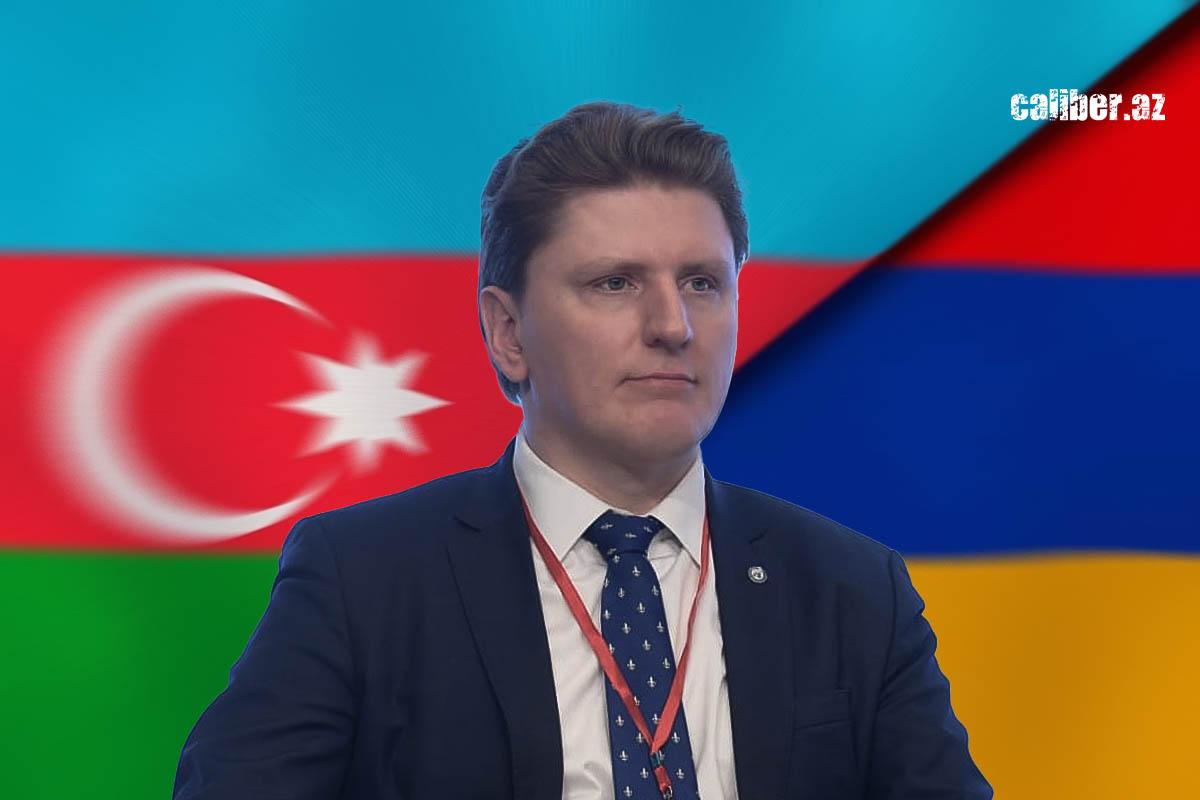Geopolitical storm brewing beyond Russia's reaction EU-US-Armenia meeting sparks controversy
Yerevan eagerly awaits April 5, anticipating a significant milestone. It appears that Armenia has successfully negotiated a shift in its sovereignty, distancing itself from Russia's influence to seek security under the protection of Western powers. This anticipation is due to an upcoming meeting scheduled for April 5 in Brussels, where officials from the European Union, the United States, and Armenia will convene.
Baku duly assessed the hypocritical step of the West - according to the Azerbaijani Foreign Ministry, the joint conference of the EU, Armenia and the US is clearly one-sided and biased and based on double standards.
"Given the revanchist mood in Armenia, such an open pro-Armenian public manifestation by Washington and Brussels might create a dangerous illusion in Armenia that the EU and US are going to support Armenia in its possible renewed provocations against Azerbaijan. In such case, the EU and US will share responsibility for any possible destabilizing action by Armenia," the Azerbaijani Foreign Ministry said in a statement.
How do Azerbaijani and European experts assess the geopolitical waltz of the EU, the US and Armenia?

Thus, according to MP and political scientist Rasim Musabayov, Azerbaijan has no illusions and builds its relations with the US and the EU on a pragmatic basis. Talking to Caliber.Az, he noted that Baku tries to stay away from the clash between the US and EU with Russia and Iran.
"But at the same time, when we observe injustice on the part of Brussels or Washington, we react adequately. Thank God, Azerbaijan is not begging for financial handouts and does not need military patronage. We are ready to be partners, but let them look for vassals and outposts elsewhere," the political scientist said.
Although, as Musabayov notes, when Armenia occupied almost 20 per cent of Azerbaijan's territory with the support of Yeltsin's Russia, Brussels and Washington did not threaten it with sanctions, but, on the contrary, showered it with financial handouts.
"Azerbaijan, on the other hand, was discriminated against by the 907th amendment of the US Congress and, contrary to international law, was sneakily recommended to come to terms with the 'new territorial realities,'" the political scientist recalled.
In his opinion, it is obvious that Armenia wants to protect itself from reprisals for "betraying" Russia, and ranting about Azerbaijan's "aggression" is just a cover. But the dividing lines in the South Caucasus have existed for a long time, so Armenia's reorientation from Moscow to the West will not radically change the situation.
"In order to make a geopolitical somersault and avoid mortal risks, the Pashinyan government needs to normalize relations with Azerbaijan and Türkiye one way or another. After all, an extremely negative reaction will follow not only from Russia, but also from Iran," Musabayov summarized.

At the same time, according to Alexander Rahr, a German political scientist and professor at the WeltTrends Institute of International Politics (Potsdam), by further supporting Armenia in the conflict with Azerbaijan, the EU and the United States want to induce Baku to take actions forced in such a situation - strengthening the energy union with Europe and refusing to cooperate with Russia.
"One should understand a very simple thing. The main goal of the EU and US policy in the South Caucasus is the isolation of Russia. The West is interested in Armenia or Azerbaijan, even Georgia itself, only to the extent that these countries are ready to join the anti-Russian alliance of the EU and NATO. For Washington and Brussels, Armenia's withdrawal from the military alliance with Russia is a huge strategic success. And, naturally, Armenia will be rewarded for this step in the West. With what? Further support for Armenia in the conflict with Azerbaijan. And Baku will be induced to strengthen its energy alliance with Europe and refuse to cooperate with Russia. The US and EU have no other geopolitics in the Caucasus, they have neither money nor strength for more," summarized A. Rahr.
In the opinion of Svyatoslav Andrianov, Director of the international NGO "Center for Political Analysis and Information Security", member of the German Council on Foreign Policy, Chairman of the Berlin Committee for Strategic Partnership in Eurasia, Washington and Brussels do not benefit from the situation when the Armenian-Azerbaijani conflict continues to smoulder and no peace treaty has been signed.

"I think that both Europe and America are interested in signing a peace agreement, which will open for them the possibility of unimpeded and low-risk investment in new transportation corridors that should pass through the territory of the South Caucasus, and the relevance of which against the background of increasing geopolitical tension has multiplied," the political scientist said.
Andrianov believes that Washington and Brussels have long ago decided how Baku and Yerevan should behave. If Yerevan in its current position agrees with almost everything that united Europe chooses for it, Baku has much more room for manoeuvre, which is why Azerbaijani representatives closely study the initiatives and configurations proposed by the West, often either ignoring or carefully putting on the brakes those that, in their opinion, do not meet the national interests of the country.
"Of course, such intransigence is upsetting for Western partners, because, after all, there is a formidable impudence to decide what is good for the future of Azerbaijan and what is not, and at the same time not to accept the persistent proposals of experienced senior (as they think of themselves) partners. As a result, the situation I have described forces the US and the EU to apply the principle of a pendulum (familiar to intelligence professionals) towards Baku, alternating modes of assistance and counteraction," the political scientist believes.
According to Andrianov, the upcoming conference on April 5 is intended to once again demonstrate to Azerbaijan that its independent policy continues to irritate the political leadership of the collective West.
"As for more serious consequences for Azerbaijan, at least on the part of the EU, they are unlikely at the moment, given the increased importance of Azerbaijani energy supplies in the current circumstances," Andrianov summarized.








